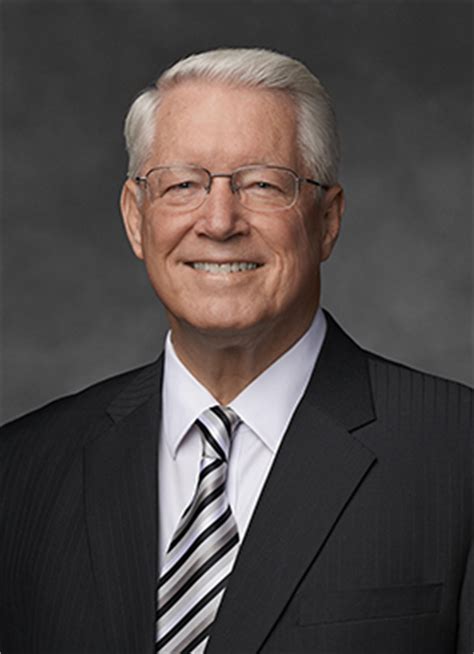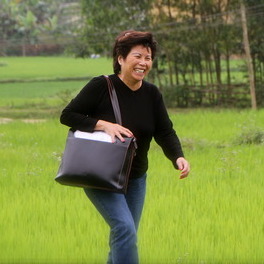A Quote by Pope Francis
For just as some people want a purely spiritual Christ, without flesh and without the cross, they also want their interpersonal relationships provided by sophisticated equipment, by screens and systems which can be turned on and off on command. Meanwhile, the Gospel tells us constantly to run the risk of a face-to-face encounter with others, with their physical presence which challenges us, with their pain and their pleas, with their joy which infects us in our close and continuous interaction.
Quote Topics
Also
And Off
Challenges
Christ
Close
Command
Constantly
Continuous
Cross
Encounter
Equipment
Face
Face-To-Face
Flesh
Gospel
Interaction
Interpersonal
Interpersonal Relationship
Joy
Just
Meanwhile
Off
On And Off
Others
Our
Pain
People
Personal Relationships
Physical
Presence
Provided
Purely
Relationships
Risk
Run
Screens
Some
Some People
Sophisticated
Spiritual
Systems
Tells
Turned
Us
Want
Which
Without
Related Quotes
We're in a hyper-connected world, and there's a crisis of connection. The first thing that God says about woman and man in the Bible is that it's not right for humans to be alone. Social media interaction cannot take the place of face-to-face interaction. If anything, it prevents us from doing that. We're staring into our screens for so long that we're forgetting to look at the people directly in front of us.
Accommodation is a central aspect of the cross-centered interpretation of violent portraits of God that I'm advocating. Like everything else in Cross Vision, this concept is anchored in the cross. On the cross, God stoops to meet us, and to enter into solidarity with us, right where we are at, which is in bondage to sin and to Satan. And he does this to free us and to bring us where he wants us to be, which is united with him in Christ. The cross is thus the paradigmatic example of God mercifully stooping to accommodate people in their fallen conditioning.
Dialogue is a space where we may see the assumptions which lay beneath the surface of our thoughts, assumptions which drive us, assumptions around which we build organizations, create economies, form nations and religions. These assumptions become habitual, mental habits that drive us, confuse us and prevent our responding intelligently to the challenges we face every day.
Essential to our personal faith and development is the unmistakable knowledge that our Father and our Savior want us to succeed. They want us to return to Their presence. Because of Their love for us, They have given us resources to obtain comfort, direction, and strength for our journey home. I speak of prayer, the wonderful and sublime ability to communicate and share our concerns with the Father; the Holy Spirit, which will enlighten and comfort us; and the words of the prophets, both ancient and modern. These resources give us understanding and direction in dealing with our challenges.
When the time comes to you at which you will be forced at last to utter the speech which has lain at the center of your soul for years, which you have, all that time, idiot-like, been saying over and over, you'll not talk about the joy of words. I saw well why the gods do not speak to us openly, nor let us answer. Till that word can be dug out of us, why should they hear the babble that we think we mean? How can they meet us face to face till we have faces?
Without you, without your onslaughts, without your uprootings of us, we should remain all our lives inert, stagnant, puerile, ignorant both of ourselves and of God. You who batter us and then dress our wounds, you who resist us and yield to us, you who wreck and build, you who shackle and liberate, the sap of our souls, the hand of God, the flesh of Christ: it is you, matter, that I bless.
Jesus Christ does not teach us a spirituality “of closed eyes”, but one of “alertness”, one which entails an absolute duty to take notice of the needs of others and of situations involving those whom the Gospel tells us are our neighbours. The gaze of Jesus, what “his eyes” teach us, leads to human closeness, solidarity, giving time, sharing our gifts and even our material goods.
Dear friends, let us not forget the flesh of Christ which is in the flesh of refugees: their flesh is the flesh of Christ. It is also your task to direct all the institutions working in the area of forced migration to new forms of co-responsibility. This phenomenon is unfortunately constantly spreading. Hence your task is increasingly demanding in order to promote tangible responses of closeness, journeying with people, taking into account the different local backgrounds.
We tend to have mixed feelings about the holy. There is a sense in which we are at the same time attracted to it and repulsed by it. Something draws us toward it, while at the same time we want to run away from it. We can’t seem to decide which way we want it. Part of us yearns for the holy, while part of us despises it. We can’t live with it, and we can’t live without it.
For you see, the face of destiny or luck or god that gives us war also gives us other kinds of pain: the loss of health and youth; the loss of loved ones or of love; the fear that we will end our days alone. Some people suffer in peace the way others suffer in war. The special gift of that suffering, I have learned, is how to be strong while we are weak, how to be brave when we are afraid, how to be wise in the midst of confusion, and how to let go of that which we can no longer hold. In this way, anger can teach us forgiveness, hate can teach us love, and war can teach us peace.
People need to learn how to respond to each other's hatreds with love - which is what Jesus taught us, which is what Buddha came here to teach us, which is what Muhammad taught us, which is what all of the great spiritual masters who have ever walked among us who live at those highest energies taught us - responding to force with more force will just create more problems.



































